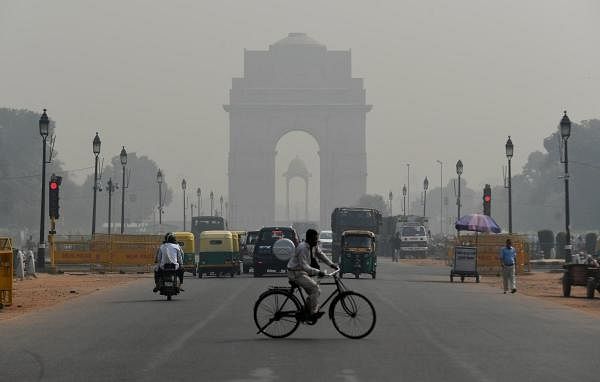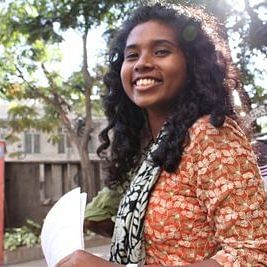
Arvind Kejriwal in his party’s manifesto has yet again listed the demand for full statehood of Delhi. With the AAP claiming that if re-elected, it will continue to work for full statehood to Delhi, the issue of full statehood has surfaced yet again.
Ahead of the Lok Sabha elections 2019, Delhi Chief Minister Arvind Kejriwal in February had announced an indefinite fast to press for the demand for full statehood for Delhi. Even as he was ready to go to war with the Bharatiya Janata Party (BJP)-ruled Centre if the need arose, his fight was clouded by people’s emotions that were surcharged with nationalism due to the Balakot airstrike. As a result, the statehood issue was given a quiet burial until this time.
Also read — BJP banks on Shah and Shaheen Bagh to win Delhi
Now that it has surfaced again, let’s understand how does the status of statehood affect governance and the lives of Delhiites?
Delhi is identified as a Union Territory under ‘Government of Part ‘C’ States Act, 1951’ which effectively gives a Legislative Assembly to Delhi. Under Section 21 of this Act, the government of Delhi has the power to formulate laws on all matters mentioned in the State and Concurrent Lists of the Seventh Schedule, except matters pertaining to: a) Public order and police, b) Municipal services like water, drainage, electricity, transport, etc, c) Land and d) Jurisdiction of courts.
These provisions allow the Centre to control the state’s steering wheel while the ruling state government takes a back seat in terms of controlling Delhi Police, the Delhi Development Authority, other civic bodies and the issue of transferring and appointing officers. According to the Constitution, the Lieutenant Governor (LG) is supposed to act on the aid and advice of the chief minister and his council of ministers. The clause suggests that if there is a conflict between the two, the matter is to be laid before the President of India. The LG, however, would have complete autonomy in the case of urgent matters, taking away further powers from the state government.
One state, multiple authorities
Apart from the Centre holding power in the functioning of the state, the Municipal Corporation of Delhi was formed in 1958 to look after essential services in Delhi and coordinate with respective departments at the Centre. As a result, now Delhi is governed by multiple authorities:
1. The Delhi government, headed by the chief minister and his council of ministers.
2. Three Municipal Corporations that look after the East, North and South Delhi.
3. New Delhi Municipal Council (NDMC) that administers New Delhi and Lutyens’ Delhi.
4. Delhi Cantonment Board that is set up exclusively for the Delhi Cantt Area.
5. Delhi Development Authority (DDA) that is set up exclusively for matters pertaining to land.
6. Lieutenant Governor to aid and advise the chief minister and his council of ministers.
7. The government of India for a variety of issues across departments such as Police, the appointment of officers and so on.
Since so many authorities govern the state, it often creates confusion while holding one accountable. For instance, in the current regime, the Delhi government cannot be held accountable for crime figures in the capital as the Centre controls the Police.
Political agenda
The current regime also limits the governance power of the state government. Thus, the demand for statehood to Delhi has been driven by political parties and not the people. History bears the evidence that parties have raked up the Delhi statehood issue to gain a foothold in the capital. The issue gets buried soon after they come to power.
For example, BJP’s Madan Lal Khurana campaigned for full statehood to Delhi and became the first chief minister of Delhi in 1993 after the restoration of the legislative assembly as per the Government of National Capital Territory of Delhi Act, 1991. Sahib Singh Verma, also of the BJP, who succeeded Khurana, even prepared a draft Delhi Reorganisation Bill, granting full statehood to Delhi leaving out the New Delhi Municipal Council (Lutyen’s Delhi) areas.
The BJP had promised statehood to Delhi in their election manifesto before the 2013 and 2015 Delhi Assembly elections and yet again before the 2014 Lok Sabha elections. In the run-up to the 2015 Assembly elections, the Congress had also promised statehood to Delhi.
Basic fact
If Delhi is granted full statehood then it would mean that the state government would be solely responsible for the state’s administration, development as well as security. However, it would impact the state’s finances as even though the Delhi government will earn more through revenues it will have to shell as much for new projects which are currently taken care of by the Centre. This could mean that the people of Delhi may have to bear an additional tax burden.
